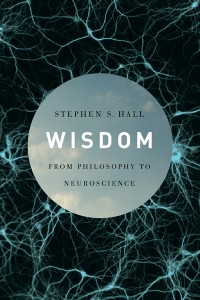Brain Pushups
ScienceDaily: Brain training reverses age-related cognitive decline. In rats. But still…
“The neurons looked young again. They were full and robust. It’s like a hose without water going through it appears collapsed. Run the water and it expands to its original size. Recovery happens.”
The Wisdom of Insecurity
 Worry a lot? To consider: The Wisdom of Insecurity by Alan Watts. You may know Alan Watts from oft-broadcast lectures–eager audience hanging on every wryly wise, British-accented utterance. (Lectures can be sampled via this podcast or downloads around the net.)
Worry a lot? To consider: The Wisdom of Insecurity by Alan Watts. You may know Alan Watts from oft-broadcast lectures–eager audience hanging on every wryly wise, British-accented utterance. (Lectures can be sampled via this podcast or downloads around the net.)
In this short book, Watts takes on worry and anxiety–a.k.a. insecurity. He argues that to live is to be insecure; all we be can certain about is the present moment. He encourages awareness, mindfulness, acceptance–Buddhist principles all adopted as central tenets of many therapy approaches (ACT, DBT, MBSR…) since the book was penned in 1951. Here’s a sample, about acceptance:
The human organism has the most wonderful powers of adaptation to both physical and psychological pain. But these can only come into full play when the pain is not being constantly restimulated by this inner effort to get away from it, to separate the “I” from the feeling. The effort creates a state of tension in which the pain thrives. But when the tension ceases, mind and body begin to absorb the pain as water reacts to a blow or a cut.
Botox Feeback
A study finds delayed reaction times to unpleasant emotion in people who’ve had Botox treatment, supporting something called the “facial feedback hypothesis.”
[A]fter Botox treatment, the subjects took more time to read…angry and sad sentences…“Normally, the brain would be sending signals to the periphery to frown, and the extent of the frown would be sent back to the brain. But here, that loop is disrupted, and the intensity of the emotion and of our ability to understand it when embodied in language is disrupted.”
Not Smoking
Jane Brody looks at smoking.
[O]ver the course of a day, as the brain continues to be exposed to nicotine, partial tolerance develops and each subsequent cigarette produces less of an effect. But during sleep, nicotine comes off the receptors and smokers awaken with an intense craving for a cigarette.
Sibling Harmony
ScienceDaily: Essential ingredients of supportive sibling relationships.
[A new paper] urges parents to think about the relationship they want their kids to have with each other–now and as adults–and to be intentional in helping them create that positive, supportive bond.
How-to suggestions included in the article.
Mental Health ER
One in eight ER visits due to mental health and/or substance abuse.
New government statistics show that nearly 12 million visits made to U.S. hospital emergency departments in 2007 involved people with a mental disorder, substance abuse problem, or both.
Feelings Contagious?
A study at PhysOrg.com–feelings catchable.
[R]esearchers [have] found a correlation between an individual’s emotional state and those of the person’s contacts. In other words, it appears that you can catch happiness. Or sadness.
(Via GoodTherapy.org)
“Techno-Tyranny”
Another distraction alarm op-ed, this time from Bob Herbert.
I was talking to a guy who commutes every day between New York and New Jersey. He props up his laptop on the front seat so he can watch DVDs while he’s driving. “I only do it in traffic,” he said. “It’s no big deal.”
Narcissism Epidemic?
David Brooks on (Mel Gibson and) narcissism, including this stat from the book, The Narcissism Epidemic:
In 1950, thousands of teenagers were asked if they considered themselves an “important person.” Twelve percent said yes. In the late 1980s, another few thousand were asked. This time, 80 percent of girls and 77 percent of boys said yes.
Wisdom (The Book)
 Here’s a not-so-recent review of Wisdom: From Philosophy to Neuroscience (via aldaily.com). And here’s the article that preceded the book. From the article:
Here’s a not-so-recent review of Wisdom: From Philosophy to Neuroscience (via aldaily.com). And here’s the article that preceded the book. From the article:
The Berlin Wisdom Paradigm…was built in part on research using hypothetical vignettes to discern wise and unwise responses to life dilemmas. “A 15-year-old girl wants to get married right away,” one vignette suggested. “What should one/she consider and do?” [The wise answer follows in the article.]